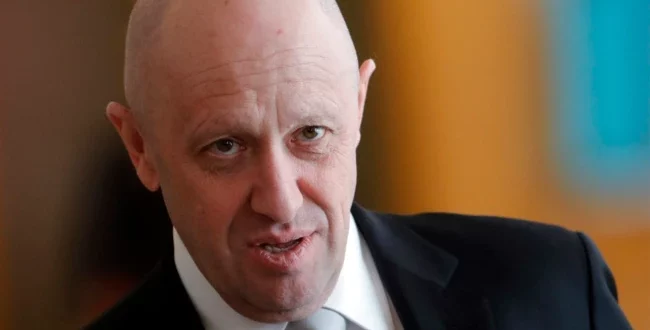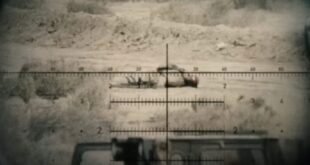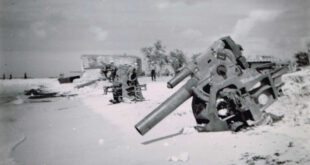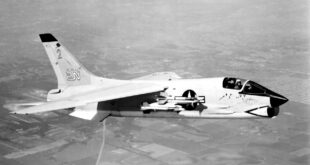by Mike Eckel, RFE/RL
The press statement, put out by a St. Petersburg company called Concord Catering and Management, pulled no punches: The elected head of Russia’s second-largest city is a crook, it suggested.
Prosecutors should investigate the “possible fact of the creation by Governor [Aleksandr] Beglov of an organized criminal community on the territory of St. Petersburg in order to plunder the state budget and enrich corrupt officials in his entourage,” the company said in its October 31 statement, addressed to the national Prosecutor-General’s Office.
In the often cutthroat arena where Russian politics and business meet, this sort of allegation might normally pass as business as usual.
But the businessman who is firing the broadside against a powerful elected leader is Yevgeny Prigozhin, a tycoon whose vast wealth comes from Kremlin catering contracts and whose notoriety comes from ownership of Russia’s most famous private mercenary company, Vagner — also known as Wagner — as well as its best-known “troll factory.”
Prigozhin’s grudge match with Beglov goes back a few years, but this latest round comes as Prigozhin has stepped further into the limelight of Russian politics, especially where conduct of the war in Ukraine is concerned.
Prigozhin has been one of the most strident critics of Russian commanders’ approach to the invasion, which by many accounts is faltering eight months in. Never mind the fact that it’s currently illegal under Russian law to criticize, or “discredit,” the armed forces, or to own or operate private mercenary companies.
“It seems pretty obvious that Prigozhin has found this an opportune moment to expand his public profile,” said Candace Rondeaux, a researcher at the New America Foundation in Washington and the author of a 2019 report called Decoding The Wagner Group. “He is not anything except for an opportunist. His career shows this, and this shows that there could be rewards for any activity that supports the war.
“He is really at his high point, his peak of political power and influence right now,” she told RFE/RL, “because the nature of this phase of the war has allowed him to lean into his role as captain of the rogue state.”
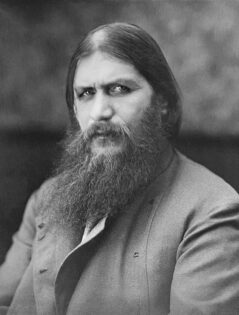
Andrei Kolesnikov, an expert on Russian politics and a senior fellow at the Washington-based Carnegie Endowment for International Peace, drew a parallel with Grigory Rasputin, the mystical monk who held sway over the family of Russia’s last tsar in the 1910s.
“In terms of his influence, at least in the public space, he begins to resemble Rasputin at the court of Nicholas II,” Kolesnikov told Current Time. “And naturally, many are now thinking about whether this person is, say, the next presidential candidate or the figure who can enter the highest spheres of politics, who is throwing elbows at everyone who approaches him.”
‘I Myself Cleaned The Old Weapons’
While Prigozhin got his start as a restauranteur and caterer in his hometown of St. Petersburg, it wasn’t until he started landing contracts to supply food services to the Kremlin that he garnered financial success. The name Concord is used for a variety of related companies.

Vagner’s exact origins, meanwhile, are shrouded in mystery, but Russian reporters and researchers like Rondeaux say the company evolved out of a network of private security companies run by former Russian special forces soldiers.
Soldiers from the group were believed to have fought in Ukraine’s Donbas after the Russian-fueled war broke out there in 2014.
And after the Kremlin ordered a large intervention in Syria to bolster the embattled regime of Syrian dictator Bashar al-Assad in 2015, Vagner soldiers gained a further reputation for wanton brutality, where they provided security for diplomats, guarded oil and gas facilities, and trained local militias. Vagner mercenaries have also been reported in the Central African Republic, working in operations to mine and export diamonds and valuable minerals.
Russian reporters identified a former Russian military intelligence soldier named Dmitry Utkin as the head of Vagner; Utkin attended a lavish Kremlin ceremony in 2016.
Prigozhin’s ownership of the Vagner group has been an open secret in and out of Russia for years.
In September, he confirmed it.
“I myself cleaned the old weapons. I myself sorted out the bulletproof vests, and I found specialists to help me with this,” he said in a September 26 statement published by Concord Management and Consulting on the VK social network. “On May 1, 2014, a group of patriots was born, which later acquired the name ‘Vagner.’”
The other Prigozhin-funded company whose origins are shrouded in mystery is the St. Petersburg-based Internet Research Agency. Dubbed the “Russian troll factory,” the company specialized in creating fake online accounts for Facebook and other social media and spreading disinformation and propaganda. It later was implicated in a conspiracy to interfere in the 2016 U.S. presidential election.
Two years later, a U.S. grand jury indicted Prigozhin, 12 other Russians, and the Internet Research Agency. The FBI put him on its most-wanted list last year.
After President Vladimir Putin ordered the invasion of Ukraine in February, Vagner mercenaries were among several irregular units that fought alongside regular Russian forces. Vagner fighters played a central role in the Russian capture of the port city of Mariupol and the Luhansk region city of Syevyerodonetsk and are reportedly involved in the ongoing assault on Bakhmut in the Donetsk region.
Over the summer, as the war began to grind into one of attrition, a growing number of Russian military bloggers vented their frustrations with commanders and the Kremlin’s unwillingness to either call a general mobilization or merely send more men to the fight.
Prigozhin took the effort to find more men into his own hands in September, when a video emerged on the Telegram messaging app showing him at a rural prison promising convicts early release if they signed up for a six-month tour in Ukraine.
Criticism of the war became a clamor after Ukrainian forces recaptured swaths of territory in the northeastern Kharkiv region and advanced against Russian troops in the Kherson region in the south.
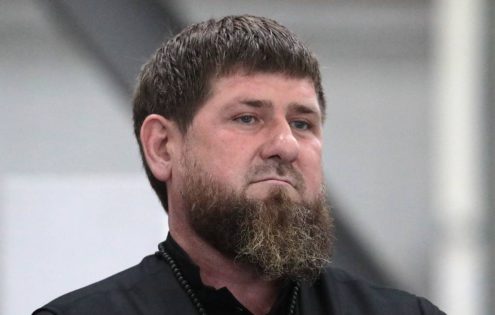
Among those clamoring: Prigozhin and Chechen strongman Ramzan Kadyrov, who called for a major escalation of the war and major changes in Russian command.
“Send all those bastards barefoot, with machine guns, to the front,” Prigozhin said in a statement issued by his company in the wake of the Kharkiv retreat.
On October 29, one of the generals who was vilified after the Russian retreat in Kharkiv – Colonel General Aleksandr Lapin – was reportedly removed from his command.
Three weeks earlier, in a shake-up to the disjointed command structure in Ukraine, Putin appointed a new overall commander: General Sergei Surovikin, who then unleashed a pummeling barrage of missiles, rockets, and drones on civilian targets in Ukraine.
Surovikin, whose appointment was hailed by Prigozhin and other critics of the way the military has waged the war, had previously been the top Russian commander in Syria — at the time when Vagner’s forces were playing an active role on and off the battlefield.
“Surovikin is the one who gave Prigozhin the running room to become what he became today,” Rondeaux said.
Grudge Match
Prigozhin’s fight with Beglov isn’t new, likely dating back to 2018, when Beglov was appointed St. Petersburg’s governor, then winning an election for the office the following year. Novaya Gazeta Europe said the bad blood traces back to a scuffle over funding of Beglov’s election campaign, as well as a real estate development on the Gulf of Finland.
Prigozhin was also behind a series of videos that mocked Beglov and featured the front man for the popular punk rock band Leningrad.
In September, another Prigozhin-linked organization that bills itself as a veteran’s advocacy group called on the national Investigative Committee to look into how St. Petersburg officials were conducing the mobilization campaign aimed at bolstering troop levels in Ukraine. The group also suggested that Beglov’s relatives might be trying to dodge the draft.
The timing of this latest broadside, however, is even more auspicious. Novaya Gazeta Europe called it a “showdown” and a “sensation.” The newspaper Petersburg Vestnik characterized Prigozhin’s popularity as “skyrocketing.”
On the same day Prigozhin made his appeal for an investigation, he announcedthe opening of a new business center in St. Petersburg to be called the Vagner Center.
Rising Political Star?
Whether Prigozhin can turn his rising star into a political career is an open question. However, “if there was any viable path for Prigozhin to become a politician, it would be in St. Petersburg,” Rondeaux said. “It’s not going to be in Moscow or somewhere in the Urals.
“I think he expects to be rewarded. He doesn’t need the money. Now he would probably like to have more political cachet and influence,” she said.
“He is establishing himself as a political force, using his popular status and his affiliation with Vagner to critique his opponents within elite circles and institutionalize his authority,” the Washington-based Institute for the Study of War said in a report this week.
Prigozhin, who could not be immediately reached for comment via his company, also gave an interview with Petersburg Vestnik in which he was asked about his political aspirations.
“As far as my increased popularity is concerned, I do not strive for popularity,” he was quoted as saying. “My task is to fulfill my duty to the motherland, and today I do not plan to found any [political] parties, let alone go into politics.”
Prigozhin’s political influence within the Kremlin is also an open question. Analysts who have followed his career point out that he has powerful backers – known as a “roof” in Russian – who have enabled him to grow his businesses and work hand in glove with Russian military structures.
And his criticism of the way the war on Ukraine is being waged has struck a chord in Russian nationalist and military-security circles.
Prigozhin reportedly complained about the conduct of the war directly to Putin, according to The Washington Post, which said his confidential conversations with Putin had made it into U.S. intelligence briefings.
“They’re on a collision course,” Kolesnikov told Current Time, the Russian-language network run by RFE/RL in cooperation with VOA. “Prigozhin is clearly very power hungry. He’s a very tough person and in many ways cruel. He has the negative charisma of a devil, and in a sense, this charisma can compete with Putin’s.
“But Putin now needs him in this capacity, in this form. He gives [Prigozhin] more and more powers, as it were, and outsources a variety of functions to him,” he said.
 Soldier of Fortune Magazine The Journal of Professional Adventurers
Soldier of Fortune Magazine The Journal of Professional Adventurers


